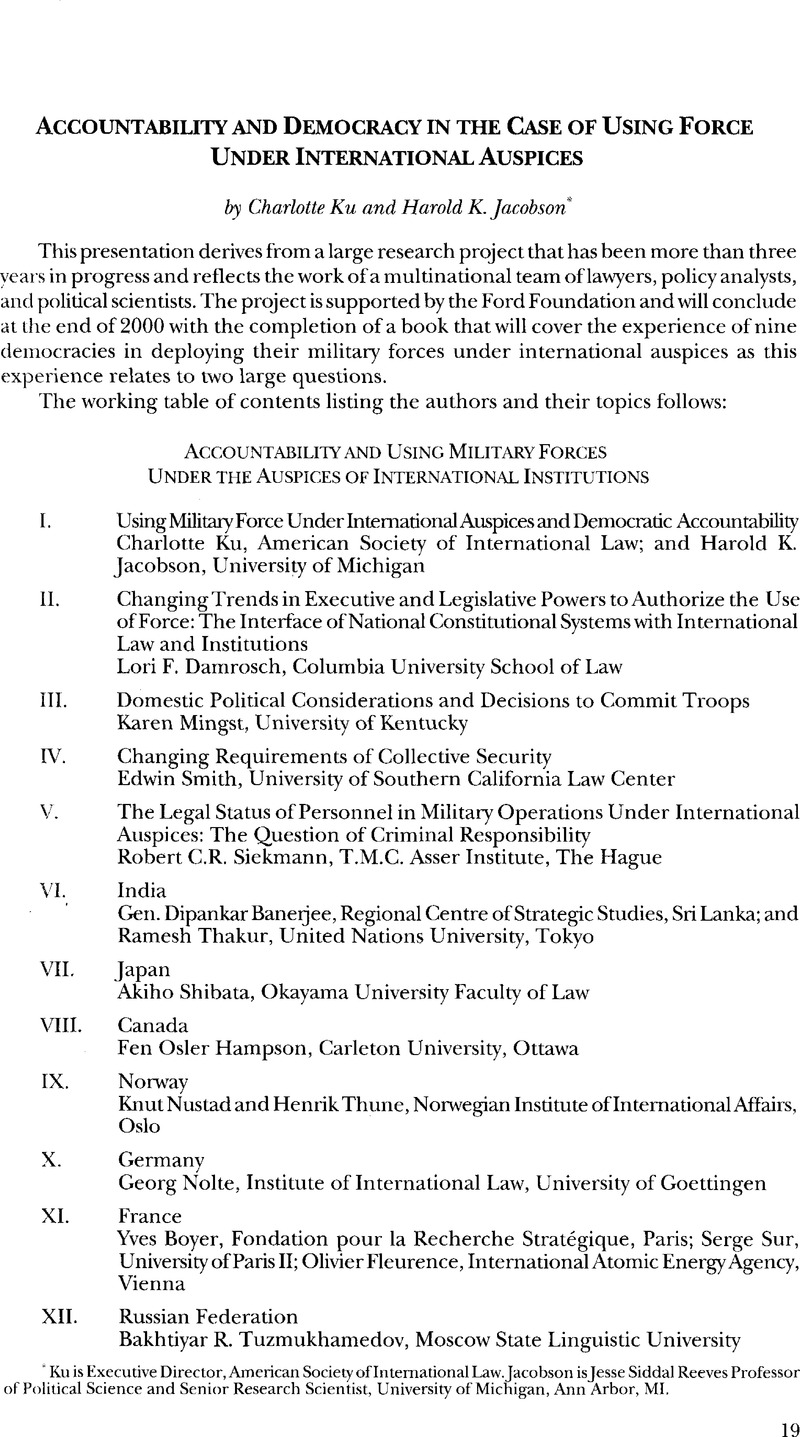No CrossRef data available.
Published online by Cambridge University Press: 28 February 2017

1 This categorization draws heavily on the concepts developed in Gareth Evans, Cooperating For Peace: The Global Agenda For the 1990s and Beyond (1993). It is related to but different from the categorization developed by Boutros Boutros-Ghali, An Agenda For Peace (1992). Of course, it draws more broadly on the wide literature concerning peacekeeping, including Paul F. Diehl, International Peacekeeping (1993); UN Peacekeeping, American Policy, And the Uncivil Wars of the 1990s (William J. Durch ed.), (1996); A Crisis in Expectations: UN Peacekeeping in the 1990s (Ramesh Thakur & Carlyle A. Thayer eds.), (1995); and James S. Sutterlin, The United Nations and the Maintenance of International Security: A Challenge to Be Met (1995).
2 See Schachter, Oscar, International Law in Theory and Practice 389–417 (1991)Google Scholar.
3 See the debate in Foreign Affairs: Michael J. Glennon, The New Interventionism, Foreign Aff., May-June 1999, at 2; Thomas M. Franck et. al., Sidelined in Kosovo? The United Nations’ Demise Has Been Exaggerated, Foreign Aff., June-July 1999, at 116.
4 See Karen Mingst, Domestic Political Considerations and the Decision to Use Force under International Auspices (Sept. 1999) (unpublished paper prepared for the ASIL Project on Accountability and the Use of Force under International Auspices).
5 Dahl, Robert A., On Democracy 147 (1998)Google Scholar.
6 See Frederic L. Kirgis, NATO Interdiction of Oil Tankers Bound for Yugoslavia, ASIL Insight (Apr. 1999), obtainable from <http:/www.asil.org/insigh33.htm>; Phillippe Sands, Oil Blockage Threatens International Law of the Sea, ASIL Insight (Apr. 1999), obtainable from <http:/www.asil.org/insigh34.htm>.
7 UN/ST/SGB/1999/13.
8 Robert A. Dahl, Polyarchy: Participation and Opposition 1 (1971).
9 DAHL, supra note 5, at 37, 38.
10 Francois Heisbourg, American Hegemony? Perceptions of the US Abroad, Survival, Winter 1999-2000, at 9.
11 See, for example, the conclusion of Leonard Meeker, former Legal Adviser of the U.S. Department of State, that “[w]hile the assertion of an international-law right to intervene to stop genocide would not have the backing of a competent United Nations body, it would signify, being made by NATO, that the air war was not being prosecuted on the decision of the United States alone, but with the concurrence of all nineteen members of NATO. This would give the claim some multilateral character, however incomplete.” Unpublished remarks, LAWS group (Apr. 29, 1999). Washington, D.C.
12 Glennon, Michael J., Sovereignty and Community after Haiti: Rethinking the Collective Use of Force, 89 AJIL 74 (1995)CrossRefGoogle Scholar.